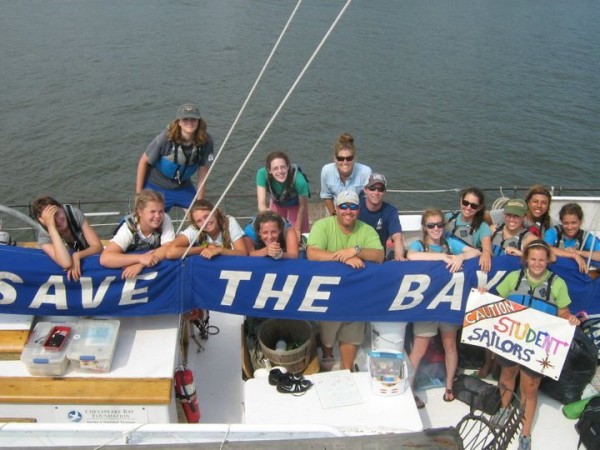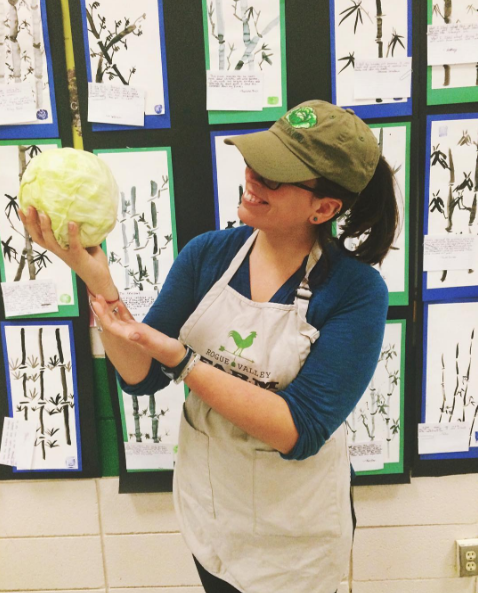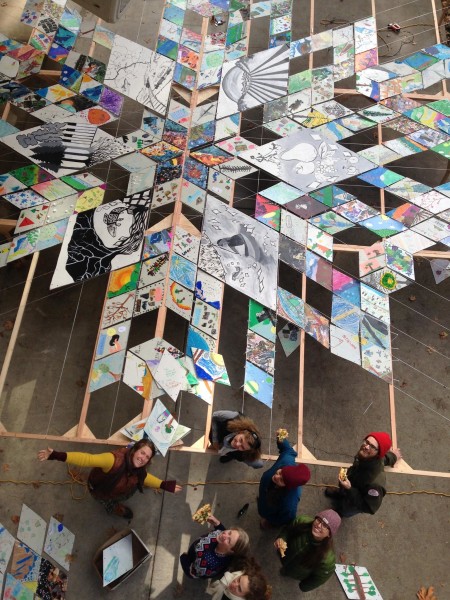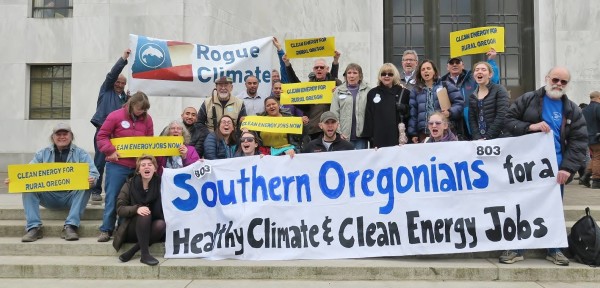No More Dead Zones: My Journey to the Fight for Climate Justice
I remember the first time we sailed through a “dead zone”. I remember the dark red color of the water and the smell of the rotting fish floating on the water’s surface. I remember the thick and slimy red algae pushing against our boat and sticking to our rudder. Most of all, I remember realizing this could be the fate of life everywhere if we didn’t change the way we treat our planet and each other immediately.
Growing up, I spent most weekends exploring the Chesapeake Bay on a sailboat with my parents. No matter where I live, those waters will always be my home. The Chesapeake Bay is the largest estuary in the United States and its watershed encompasses parts of six states. It was once one of the unhealthiest bodies of water in the U.S. because of industrialization and conventional agriculture in its watershed.

When I was 16, I spent my summer living on a 100 year old skipjack to work on watershed restoration projects with the Chesapeake Bay Foundation. I’m on the right wearing a green hat.
Because of experiencing those impacts first hand, I got involved in the climate justice movement early on. My commitment began in high school when I organized students to environmental actions and events in D.C. and interned with the Environmental Protection Agency, the Smithsonian National Zoo, and the Chesapeake Bay Foundation. In college, I studied Government and Environmental Science & Policy, spending almost every evening sailing on the bay, working in outdoor labs or at a nearby organic farm. Since then I have dreamed of developing and advocating for policies that reduce climate pollution by changing the unjust systems that got us here in the first place.
After graduating, I accepted an Americorps position at a farm to school non-profit in a rural community in southern Oregon teaching elementary school students about how eating fresh and local food can help keep your mind, body, and the environment healthy. Moving to a place I had never been and where I knew absolutely no one was a challenge I was excited to take on. I moved because I wanted to be somewhere new, somewhere I could connect with the community and the surrounding nature.

Working at Rogue Valley Farm to School, where I introduced locally-grown vegetables to schools across southern Oregon.
I moved to a region in the U.S. that couldn’t be more different than where I grew up in D.C. I share my new home with species like northern spotted owls, raging wild rivers, varieties of wildflowers found only here, and more than 130 types of butterflies. I am surrounded by mountains instead of historical monuments. While I grew up in an area where Monsanto lobbyists roam free and the “War on Drugs” got its start, I now live in a place with a GMO ban and thousands of marijuana farms.
The forces that shape our broken systems are strongest in D.C. and it’s easy to become disconnected from the impacts of those decisions on rural parts of America like where I live now. Southern Oregon has an anti-establishment mentality that I would never be exposed to in D.C. While Oregon is known as a solidly blue state to most, the county I live in and most of rural Oregon went to Trump in the 2016 election and has a large and well organized patriot militia movement hostile to public lands and other important environmental regulations.
In the suburbs of D.C. I grew up with friends from all over the world, which meant I was close to people with families who were affected by rising seas, drought, heat waves, and loss of traditional food sources. When floods inundated Pakistan and Afghanistan in 2013, I listened to personal accounts of friends with families whose homes were destroyed and communities displaced by the floodwaters. So even though I couldn’t see the worst of the impacts, climate change always felt personal and the consequences felt real.

Ashland Climate Week’s Community Art Project was my first introduction to Rogue Climate. I’m wearing the pink hat on the right.
Shortly after my move, a new friend invited me to help work on a community art project for Ashland’s Climate Week that was organized by Rogue Climate, a grassroots climate justice organization. We assembled a giant snowflake made up of hundreds of cardboard panels painted by students from all over the Rogue Valley, and each tile illustrated what students loved about the place they live. Little did I know, this snowflake project was the kickoff to a youth-driven climate action campaign in Ashland that I would eventually run.
Other than the rivers and forests, Rogue Climate was the first place that I felt at home in the Southern Oregon. The organization shares a building called the Rogue Action Center (RAC) with other community groups in southern Oregon. The RAC is a space for social, environmental, and racial justice organizing, and serves as the home base for community groups working on everything from forest workers’ rights to affordable housing policies. It is a physical space where all of our movements can intersect and collaborate. At the RAC, I saw that there was a place for this policy-nerd in southern Oregon after all.
Soon after getting acquainted with the RAC, I was offered a position in the Peace Corps. At this point, I had no plans for after Americorps. I knew that Rogue Climate was planning on hiring their second staff person in the next couple of months, but there was no guarantee that was a spot for me. I had a big decision to make: stay in Oregon or move to Ghana?
Although the opportunity to live in Africa was unbelievable, I recognized that the Peace Corps was not the right place for me. For one, it perpetuates colonialism and paternalism, the very systems that are at the root of the climate crisis. Ultimately, I decided that the best way to fight for climate justice is through the community that I was already a part of and by building power from within. I declined the offer because I didn’t need to wait two years to start working for climate justice. I was going to do now it in my new home in southern Oregon.
For the past year, I have been working as a community organizer at Rogue Climate and I have never regretted my decision to stay on this continent, specifically in southern Oregon. A lot has changed since then, in myself and in the world. Since Trump’s inauguration, I’ve felt even more certain that staying in the Rogue Valley was the right decision. Local action, especially in rural areas, is more important than ever, now that the White House is controlled by people deeply connected to the fossil fuel industry. My job has allowed me to stay activated and involved locally whether it’s by supporting community teams that are working to pass a climate action ordinance in the city of Ashland, developing and implementing a clean energy plan in the city of Talent, advocating for statewide climate legislation, or fighting the proposed fracked gas pipeline in southern Oregon. The determination behind my work and the passion that thrives in my community give me hope that our generation will successfully take on climate change and shape our future for the better.

In March, I organized a group of southern Oregonians to lobby for the Clean Energy Jobs Bill at the State Capitol.



No comments.
Comments are currently closed. Comments are closed on all posts older than one year, and for those in our archive.